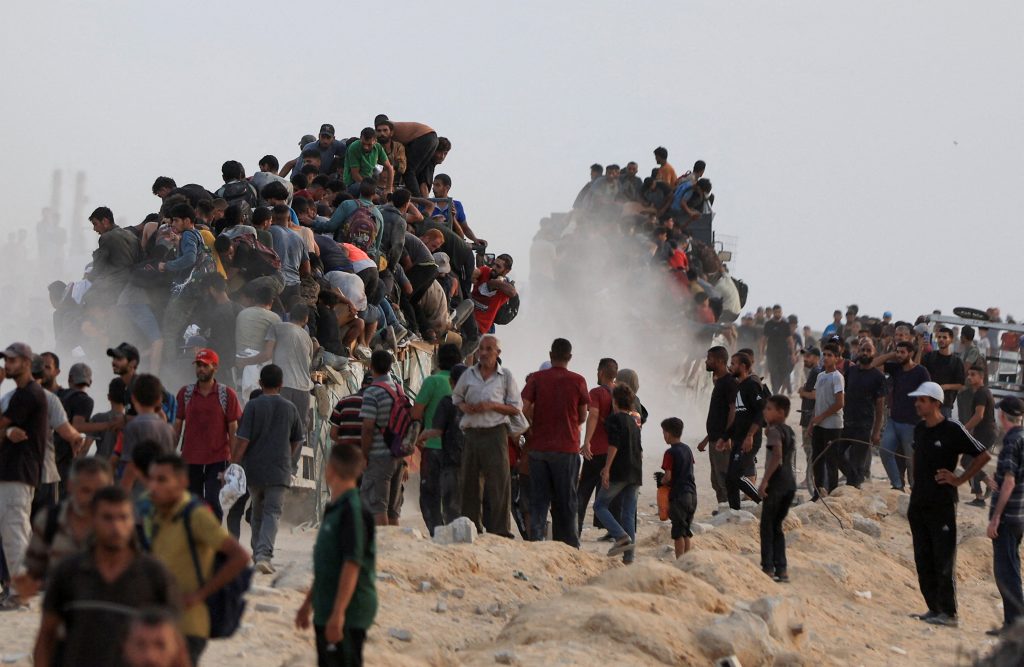The UK-based human rights group Amnesty International said on Monday that Israel is carrying out a “deliberate campaign of starvation” in the Gaza Strip, citing testimonies from Palestinians living under the siege, and called for an immediate ceasefire and end to the blockade.
“To even begin reversing the devastating consequences of Israel’s inhumane policies and actions, which have made mass starvation a grim reality in Gaza, there must be an immediate, unconditional lifting of the blockade and a sustained ceasefire,” said Erika Guevara Rosas, Senior Director for Research, Advocacy, Policy and Campaigns at Amnesty International.
“The impact of Israel’s blockade and its ongoing genocide on civilians, particularly on children, people with disabilities, those with chronic illnesses, older people and pregnant and breastfeeding women, is catastrophic and cannot be undone by simply increasing the number of aid trucks or restoring performative, ineffective and dangerous airdrops of aid,” Rosas added.
The report put emphasis on the plight of pregnant women and mothers of infants who are struggling to produce breast milk and facing shortages of baby formula and are struggling to feed their children. Save the Children screened 747 pregnant and breastfeeding women in July and found that over 40% were malnourished.

“I fear miscarriage, but I also think about my baby: I panic just thinking about the potential impact of my own hunger on the baby’s health, its weight, whether it will have [birth defects], and even if the baby is born healthy, what life awaits it, amidst displacement, bombs, tents,” Hadeel, a fourth-month pregnant mother of two told Amnesty.
Palestinians also spoke of how people were fighting for aid rather than cooperating and helping each other like they used to. Palestinians have been coming under Israeli attack while trying to reach aid, with nearly 2,000 aid seekers being killed since the end of May.
“I saw with my own eyes people carrying bags of flour stained with the blood of those who had just been shot; even people I knew were almost unrecognizable. The experience of hunger and war has changed Gaza completely; it has changed our values,” said Nahed, a 66-year-old man.
Older people spoke of feeling like a burden on their family members who are helping them survive. “When we were displaced, they had to push me on a wheelchair. With toilet queues extremely long in the camp where we stay, I need adult diapers, which are extremely expensive,” said Aziza, a 75-year-old woman.
“I need medication for diabetes, blood pressure and a heart condition, and have had to take medicine which has expired. I always feel like these young children, they are the ones who deserve to live, my grandchildren. I feel like I’m a burden on them, on my son,” Aziza added.
Amid global outrage, Israel has allowed slightly more aid to enter Gaza, but aid groups are warning it’s not nearly enough to stave off further catastrophe, and hospitals in Gaza continue to record daily starvation deaths. Despite the humanitarian situation, the US continues to provide weapons to Israel and is backing its plans to escalate.


